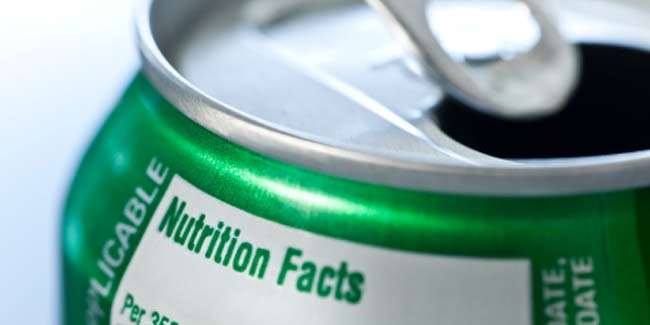
The key to good health begins with your mouth. Your mouth is the door to your overall health. The link between oral health and diet is important. Oral disease can affect good nutrition and, poor nutrition can contribute to tooth decay and compromise your overall oral health. What you eat, especially foods and drinks high in sugar, acidity and other cavity-promoting substances and low in nutritional value, has the potential to develop plaque and acids capable of damaging tooth enamel.
Table of Content:-

So before beginning with the above stated question that, does diet soda cause tooth decay? We must understand how the tooth decay happens?
So, How does it Happen?
Every tooth is covered with a very thin film composed of saliva proteins and many other materials known as tooth enamel. Tooth decay occurs when foods containing carbohydrates (sugars and starches) such as milk, pop, raisins, cakes or candy or high acidity foods and drinks are frequently left on the teeth. Bacteria that live in the mouth thrive on these foods, producing acids as a result. Over a period of time, these acids destroy tooth enamel, resulting in tooth decay.
It is a well established fact that the sugar in soda is a major cause of tooth decay. Sugar, in any food, feeds bacteria that live in your mouth. These bacteria multiply rapidly and they then secrete acids that dissolve tooth enamel.
If sugar is the problem then what is the harm in consuming diet sodas or carbonated beverages. As these are typically sugar-free, artificially sweetened, non-alcoholic carbonated beverages. Answer to the query is that it’s not just sugar that's bad for teeth, but the acids included in many popular drinks are said to "eat" away enamel and make teeth more prone to decay. The pH of regular and diet sodas ranges from 2.47-3.35. The PH in our mouth is normally about 6.2 to 7.0 slightly more acidic than water. At a PH of 5.2 to 5.5 or below the acid begins to dissolve the hard enamel of our teeth.

Sodas also contain carbonic or phosphoric acid which, over time, can dissolve the calcium out of a tooth’s enamel. Without the protection of the enamel layer, the soft tissue underneath is open to bacteria leading to cavities and tooth destruction. Over time, the acid can also weaken gums and jawbones.
The saliva present in mouth helps neutralize acids and wash your teeth clean, but the worst time to drink soda, ironically, is when you are very thirsty or dehydrated due to low levels of saliva. Also the caffeine will dry your mouth and decrease your saliva. The larger the volume of intake, the more impact soda pop has on your teeth.
Thus, we see that diet soda though low in calorie are major risk for oral health as they cause destruction of tooth enamel hence causing tooth decay. Women especially like to drink them throughout the day and between meals because they have no calories, yet the higher frequency and volume is putting their teeth at risk.
Read Next
Flouride Treatments and Your Teeth
How we keep this article up to date:
We work with experts and keep a close eye on the latest in health and wellness. Whenever there is a new research or helpful information, we update our articles with accurate and useful advice.
Current Version